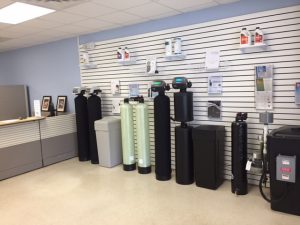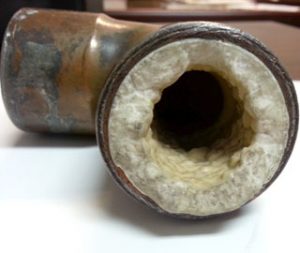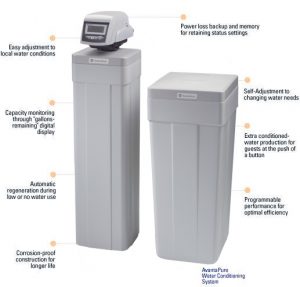A water softener is a hard working piece of equipment, removing hardness minerals such as calcium and magnesium from the water ( as well as dissolved iron & manganese) in your home throughout the day, weeks, months and years. Just like any other appliance, a water softener will only last for so long. Eventually, components break, electrical problems occur, and it just stops working. While they can last much longer if properly maintained, water softeners have a typical lifespan of between 10 and 15 years, sometimes longer depending on the circumstances such as how much water is processed and the incoming quality of water being treated. We currently service systems well over 20 years old. If you are softening extremely hard water or well water with iron, your equipment may need to be replaced sooner, although we have found some systems perform much better than others under these conditions.
As there is no definite time when you should replace a water softener, it is important to learn how to spot signs that your water softener may be starting to fail.
SIGNS OF IMPROPERLY WORKING WATER SOFTENER
There are several signs that your home’s water softener isn’t producing the quality of water you’d expect. Yet, noticing these signs may not mean your water softener needs to be replaced. It could mean your softener simply needs servicing. There might be a certain component that can be replaced, you may need to replace the media inside the tank, or you simply forgot to add salt in the brine tank. Valves can become jammed or the softener could require cleaning. If you’re unsure of the problem, contact your local residential water treatment experts and have them look at your situation.
Here are four things to watch for that could indicate your water softener needs to be serviced or replaced.
WHITE, CRUSTY BUILD-UP AROUND FAUCETS & PIPES
The minerals that are naturally present in hard water can cause a crusty buildup around your pipes and faucets. Pay attention to your faucets when you are cleaning the kitchen and bathroom. If you notice a chalky substance building up around them, this could be a sign that you need to take a look at your softener.
LAUNDRY PROBLEMS
Washing your clothes in hard water can make them stiff and scratchy. Fabric softener can counteract this stiffness to some extent, but a more effective solution is to make sure your water softener is functioning properly to effectively remove the minerals that are making the clothes stiff and slowly fraying away at the fabric itself. Hard water can also damage a washing machine as well as other appliances such as hot water heaters and dishwashers. To protect those appliances, it is important to check to make sure your water softener is functioning properly.
NOT ENOUGH LATHER
Another sign of hard water is that getting lather from soaps is more difficult than it should be. If you notice that you are having a hard time soaping up in the shower or at the sink, you may need to check your water softener. You may notice that you are going through shampoo and soap a lot faster than usual, as you need to use more to make a decent lather.
YOUR WATER TASTES DIFFERENT
Hard water tastes different than soft water. Some people prefer the smooth taste of soft water and will notice if the water supply to their home begins to have increased mineral content. If you’re drinking water straight from the tap, pay attention to changes in taste, as it could mean your softener needs to be serviced or replaced.
Benefits of a New Water Softener
One advantage of replacing an old water softener is the marked improvements in efficiency in reduced salt requirements and water used in the backwash cycle. The better systems today are computerized enabling you to have them programmed to know your specific incoming water quality, while monitoring volume usage, making them very efficient in terms of both water and salt usage. For more information on hard water, see the link at USGS Hard Water.
If your water hasn’t been getting properly softened, it means you’ve likely been dealing with common hard water problems like those mentioned above. A new water softener could make it easier to keep your house clean, provide you with softer clothes, and better hair and skin. It also helps ensures your water-using appliances last at least as long as you’d expect.





